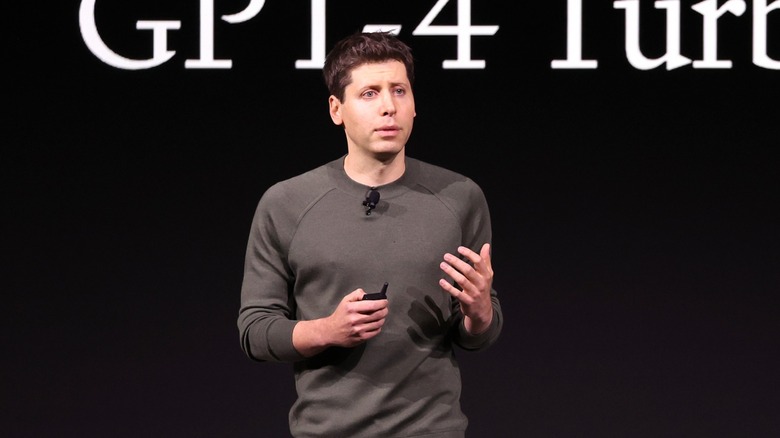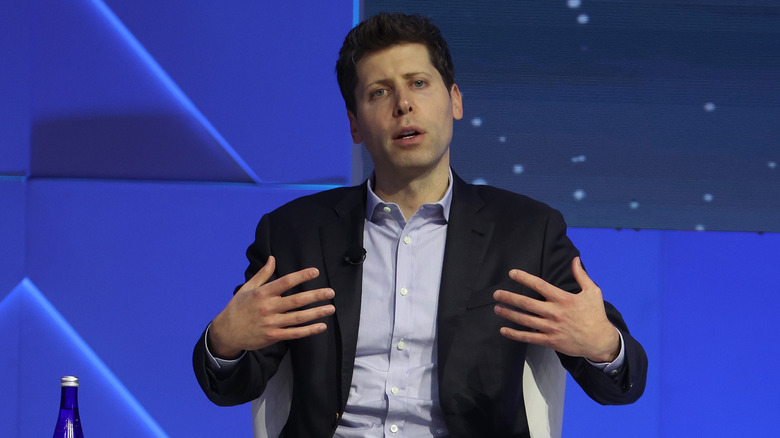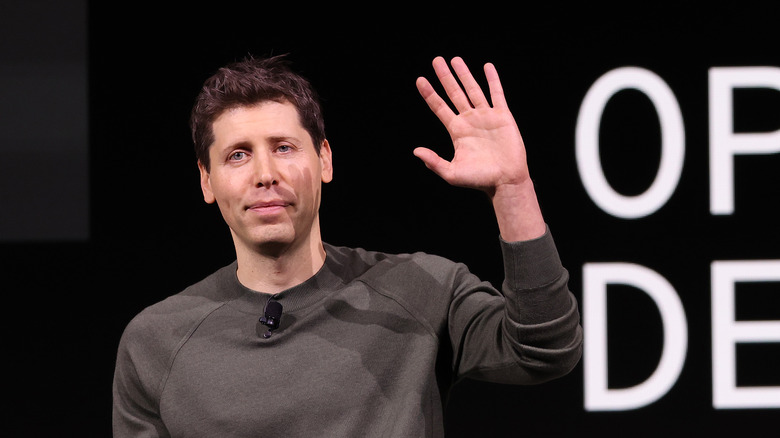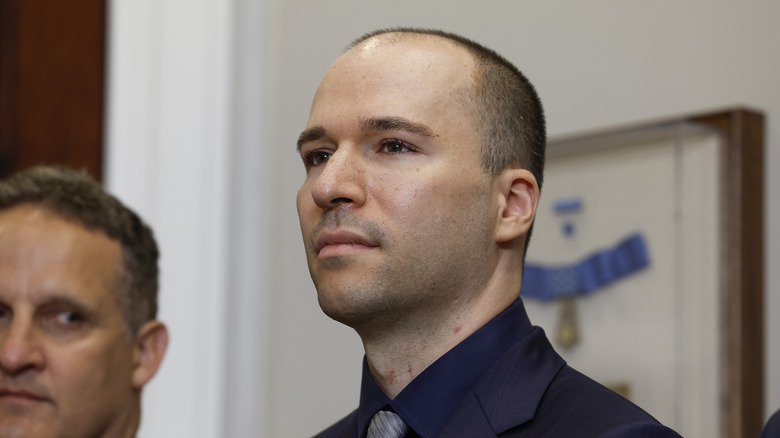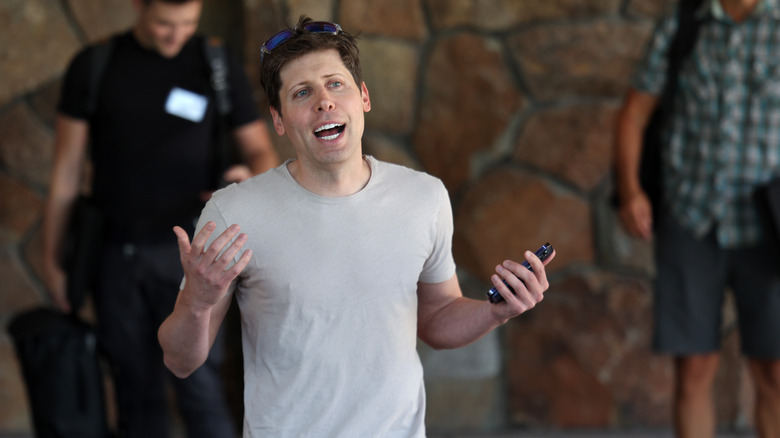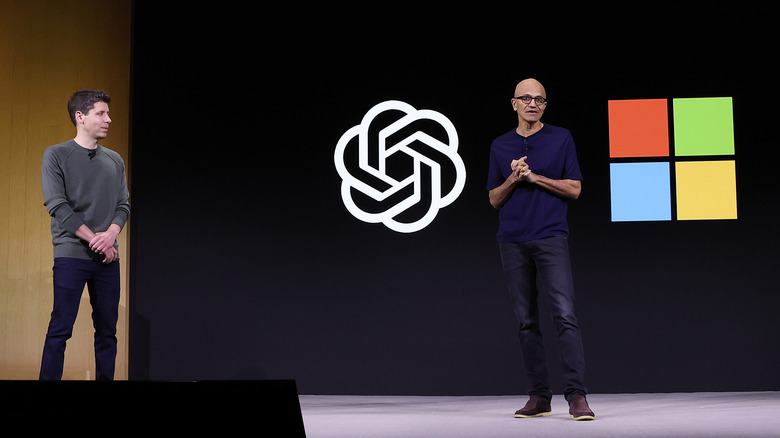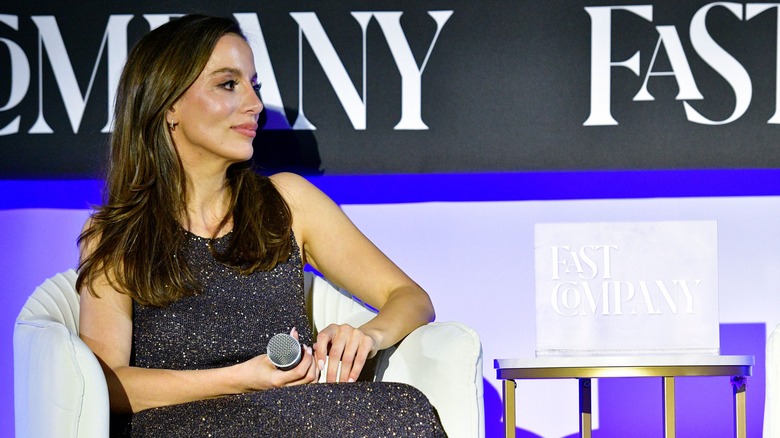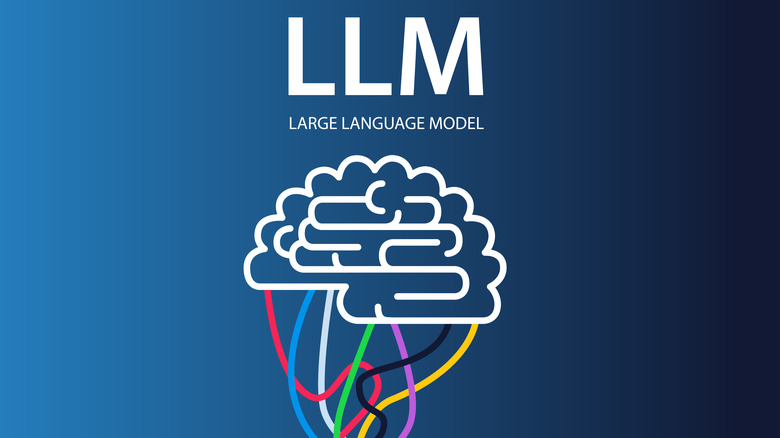The Rise And Fall Of Sam Altman: A Detailed Timeline Of OpenAI's Leadership Shakeup
OpenAI is arguably the biggest name in a rapidly expanding industry. Its programs, which include ChatGPT and Dall-e 2, have sought to set the standard when it comes to publicly accessible AI models. Its early backers include the likes of Elon Musk, while tech giant Microsoft currently holds a significant number of shares in the company. However, recent events seem to have put all of that in jeopardy.
While it started out as a non-profit aiming to develop AI for the benefit of humanity while also avoiding any Skynet-type situations, the organization eventually made the shift to a for-profit model. As recently as October 2023, plans were being put in place that would see the company become publicly traded. Estimates on OpenAI's value should this happen have been as high as 86 billion. But those plans aren't currently the focus of everyone's attention. On November 17, OpenAI's board fired the company's CEO and original board member Sam Altman. Although a replacement quickly surfaced, it's fair to say the organization is in disarray. Shareholders aren't happy, employees are threatening to walk, and other key figures have already followed Altman out of the door. Here's a look at the story so far.
Who is Sam Altman?
Altman's resume stretches far beyond his work at OpenAI. He's been a bit of a mainstay in the tech industry for a while now. He indirectly played a part in the launch of several successful startups, including Dropbox and AirBnB, through his association with startup accelerator Y Combinator — where he served as president. He personally invested in those companies early on, and this has contributed to his substantial net worth. It's hard to find an exact figure, but estimates from several sources suggest that Altman is worth several hundred million dollars. Altman also drives a McLaren F1, which is around $20 million worth of rare automotive perfection. So it's safe to say the financial side of his life is going pretty well.
His love of tech started early. Altman could take apart an Apple Macintosh at the age of eight, and presumably reassemble it too. The Macintosh is also where he dipped his toes into the world of programming. Among his stranger traits is "doomsday prepping," with the entrepreneur telling Business Insider that he has "a stash of guns, gold, potassium iodide, antibiotics, batteries, water, gas masks from the Israeli Defense Force, and a big patch of land in Big Sur" that he can fly to.
What did he do at Open AI
Altman was one of OpenAI's founding board members and served as the company's co-chair alongside Elon Musk back in 2015. Although Musk moved on, Altman didn't and ended up serving as the company's CEO and doing everything that job entailed. This included attending congressional hearings, dealing with the media, chairing conferences, outlining company policies, and implementing OpenAI's core visions. Just days before he was fired, Altman took a leading role at OpenAi's inaugural developer's conference.
Altman also oversaw every major milestone OpenAI has hit since its launch — including the development and subsequent debuts of its most well-known products — and its transition from a nonprofit to a profit-making company. The latter involved a few rounds of venture capital funding, which Altman was no doubt involved in. Given the success of ChatGPT and its other programs, it's fair to say that the company saw huge financial growth during Altman's time at the helm. More recently Altman will have overseen preparations for OpenAI's shift from privately owned to a publicly traded company. Its valuation allegedly stands at $86 billion (or more).
He was dismissed due to a lack of confidence from the board
While the exact reasons for Altman's dismissal are currently unclear, the official statement from OpenAI's representatives alleges that "he was not consistently candid in his communications with the board, hindering its ability to exercise its responsibilities. The board no longer has confidence in his ability to continue leading OpenAI."
A statement released shortly after Altman's dismissal also claims that the firing followed "a deliberative review process by the board." Later in the statement, Altman was thanked for his contributions before the board claimed that "we believe new leadership is necessary as we move forward." Former OpenAI co-chair Elon Musk seemed to worry the threat of an AI apocalypse was behind the firing, but those suggestions have since been dismissed.
Shortly after Altman's dismissal, efforts were being made to bring the former CEO back to the company. Those discussions, if they happened, may still be ongoing. It's understood that Altman has demanded organizational changes take place at OpenAI — which likely relates to the powers the board had to dismiss him in the first place.
Some other big names have also gone
Shortly after the news of Altman's dismissal broke, OpenAI chairman Greg Brockman tendered his resignation and was followed out of the company by several senior researchers. OpenAI's official statement initially claimed Brockman would be stepping down as chairman but would otherwise remain in his role and report to the new CEO.
MIT dropout Brockman started his career at Stripe before becoming one of OpenAI's co-founders. Like Altman, he had a key public-facing role and was responsible for unveiling GPT-4 in the spring of 2023. While both Altman and Brockman are significant losses for the company, they may not be the last ones to leave.
Shortly after the two founders departed, a letter signed by over 700 OpenAI employees was presented to the board. The letter demands the board stand down after reinstating Altman and Brockman. Summarising the whole scenario, it states: "Your actions have made it obvious that you are incapable of overseeing OpenAI." Notably, the first signatory is Mira Murati — who very briefly served as interim CEO following Altman's dismissal. Should the signatories carry out their threat, OpenAI will be left with around 70 staff members.
The company's strange structure allowed it to happen
In most public companies, board members are elected by shareholders. This isn't the case with OpenAI, which retains a lot of rules from its early days as a non-profit. The OpenAI board can set its own size, bring in new members, and dismiss members without consulting the company's stakeholders. It's all done via a majority vote.
Earlier this year, several board members departed — leaving six people in charge of the company. Two of those people were Altman and Brockman. This led to a situation where Altman could be dismissed if four board members wanted him gone, and there was little anyone could do about it.
There is a logic behind this structure. Most of the board members have no financial stake in the now for-profit company. The board is designed to exist and operate independently from the rest of the company — with its main focus being the completion of OpenAI's core mission. In theory, it's a sort of safeguard. While profit-driven venture capitalists may throw ethics out of the window for increased income, the board has no financial stake in the company and can't be punished for going against investors. So it would put a stop to any potential ethical violations. Unfortunately, as we've recently seen, it can also backfire.
All may not be what it seems
While the board members responsible for the firing suggest Altman misled them in some way, the actual details are less clear-cut. In a letter signed by the majority of the company's 700 or so employees, it is alleged that numerous requests have been made for "specific facts" for the board's "allegations." The letter goes on to say that despite the requests, "written evidence" validating the reasons for the firing has not been provided. The wording in the statement is also incredibly vague, putting the firing down to a "lack of confidence" in the former CEO. Given the reaction of staff and shareholders, that lack of confidence may be limited to the board alone.
One of the board members responsible for the firing also seems to be experiencing remorse for his actions. OpenAI's chief scientist, Ilya Sutskever, tweeted: "I deeply regret my participation in the board's actions. I never intended to harm OpenAI. I love everything we've built together and I will do everything I can to reunite the company." If Sutskever had voted the other way, there would not have been a majority, and Altman would still be the company's CEO. While Sutskever's U-turn could be the result of the backlash against the board's decision, it may also suggest he cast his vote without solid evidence against Altman.
Altman and co have already landed a new job
Given his resume, it's unlikely Altman would ever be out of work for long. However, a job offer landed on his doorstep far quicker than anyone may have expected. Altman and Brockman were quickly offered similar roles at Microsoft, which they both accepted. The offer is also open to any other OpenAI employees who choose to leave the company following Altman's firing.
On the social media site formally known as Twitter, Microsoft CEO Satya Nadella wrote: "We're extremely excited to share the news that Sam Altman and Greg Brockman, together with colleagues, will be joining Microsoft to lead a new advanced AI research team. We look forward to moving quickly to provide them with the resources needed for their success."
Microsoft, which owns a significant share of OpenAI, has been keen on AI development for a long time. It is currently embroiled in an AI arms race with Google, which escalated following the announcement of Bing AI. Microsoft's AI tool led to Google rushing out its own AI model, which is called Bard. Both tech giants have rapidly developed their AI chatbots ever since. The injection of experience courtesy of Altman, Brockman, and every other former OpenAI employee may prove invaluable to Microsoft.
Altman's replacement didn't last long
The future is looking a bit more bleak for OpenAI, which has managed to go through two new CEOs in roughly the same number of days. The statement which announced Altman's dismissal also said OpenAI's chief technology officer Mira Murati was stepping up to serve as "interim CEO" while a permanent replacement for Altman was found. The statement claimed Murati was "uniquely qualified for the role" and outlined her experience. This included the five years she has spent in a leadership role at OpenAI, and her "close engagement" with all aspects of the company.
Her replacement, and OpenAI's new permanent CEO, is streaming website Twitch's co-founder and former CEO Emmett Shear. Shaer wasted no time in confronting the elephant in the room, admitting on Twitter/X that "the process and communications around Sam's removal has been handled very badly." Indeed, the new CEO's three-point plan for his first 30 days in charge seems to be a response to the events leading up to his appointment. By mid-December, Shear intends to:
- Hire an independent investigator to dig into the entire process leading up to this point and generate a full report.
- Continue to speak to as many of our employees, partners, investors, and customers as possible, take good notes, and share the key takeaways.
- Reform the management and leadership team in light of recent departures into an effective force to drive results for our customers.
However, that assumes things have stabilized. There could still be a few more twists and turns to come in this odd, out-of-the-blue, corporate saga. Whatever happens next, we're sure it will be relayed via a lengthy post on X, as most of this seems to have played out over Elon Musk's latest impulse buy.
It's all hanging in the balance for OpenAI
So what happens now? We don't know, and at the time of writing, it's unlikely anyone does. If the company's staff are keen on sticking to their word, what happens in the immediate future will depend on the board's actions. Even if the board does comply and stands down, the offer Microsoft has laid on the table may be enough to tempt a number of employees over. Similarly, if Altman and Brockman are offered their old jobs back, there are no guarantees that the pair will opt to return. If the company manages to avoid a mass exodus, then there are still some issues that will need ironing out.
A major problem relates to shareholder confidence. Investors tend to like stability. The current situation at OpenAI is the opposite of that. According to Bloomberg, the people holding the purse strings had also attempted to reinstate Altman and get rid of the people who fired him but were unable to do so because of the company's odd structure. If the money men start looking for a way out, and no one wants to hop in, then the company could wind up in deep trouble. Still, despite how bad it currently looks, there are still some positives OpenAI can cling to.
OpenAI may not lose everything
Even if the loss of two of its key figures is followed by over two-thirds of its staff jumping ship, OpenAI will still have something left. At the very least, the company will still own the rights to the most well-known, and one of the best, large language model AIs on the planet, along with numerous other programs including Dall-E 2 and other generative programs. Above all else, there's also the large database and years of training that have gone into the company's models.
There's also a potential legal mess to consider. Those former staff members can't just repeat everything they did to create ChatGPT, or pick up where they left off and develop GPT 5. Anything they do will have to be legally distinct from the work they performed at OpenAI, or it could lead to a major lawsuit. To be clear, the concept of a generative AI or LLM isn't owned by OpenAI, and the former staffers are free to create that sort of program. But if they copy a bit of their old code or a particular way of doing things that is unique to one of OpenAI's models, then there could be trouble.
To complicate things further, Microsoft — which is offering jobs to OpenAI staff who want out — owns a good chunk of OpenAI. So we could see a situation where the tech giant is being sued by something that's almost a subsidiary. Then again, given the chaos, along with OpenAI's legal woes, shareholder confidence could hit rock bottom and this could be Microsoft's chance to acquire a majority share in the world's biggest AI company.
